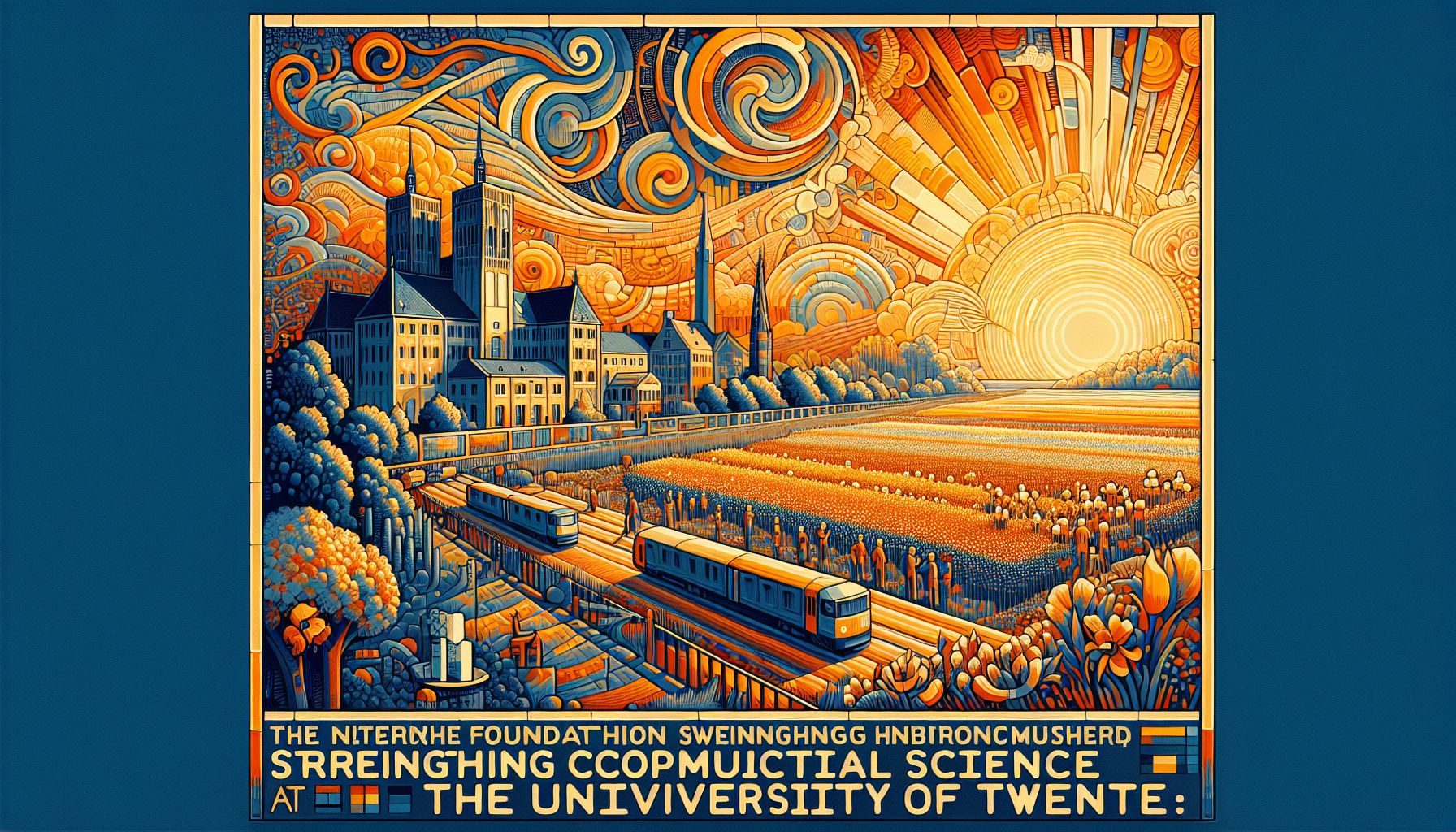Dutch Foundation Boosts Computational Science at University of Twente

Enschede, Friday, 25 October 2024.
The Computational Science NL Foundation, established at the University of Twente, aims to strengthen Dutch expertise in addressing global challenges. This initiative positions the Netherlands as a leader in scientific research and application, focusing on clean energy and sustainable food systems.
Strategic National Initiative
The Computational Science NL Foundation’s establishment is a strategic move under the National Agenda for Computational Science, emphasizing the Netherlands’ commitment to leveraging computational models and simulations to address pressing societal issues. This initiative, presented to the Ministry of Economic Affairs in 2022, highlights the importance of computational science in forming innovative solutions for clean energy, sustainable food systems, and water management.
Leadership and Key Figures
The foundation’s leadership comprises distinguished figures from top Dutch universities, including Johan Mentink from Radboud University as chair, Bianca Giovanardi from TU Delft as secretary, and Linn Leppert from the University of Twente as treasurer. These appointments reflect a collaborative effort across institutions to bolster computational science capabilities. The headquarters of the foundation is located at CWI, the NWO institute for research in theoretical computer science and mathematics, further solidifying its research-oriented focus[1].
Focus Areas and Contributions
The foundation prioritizes areas such as energy-efficient computing, data-driven methods, multiscale modeling, machine learning, and uncertainty analysis. The University of Twente plays a pivotal role in these advancements, integrating computational sciences across all its faculties. This interdisciplinary approach is crucial for fostering innovation and ensuring that computational sciences remain at the forefront of academic and practical applications. As Prof. Dr. Linn Leppert emphasizes, these efforts are integral to tackling critical challenges related to energy, water, and food security[1].
Global Recognition and Impact
The growing importance of computational sciences is not confined to the Netherlands. This field has gained global recognition, as evidenced by the 2024 Nobel Prizes in Physics and Chemistry, which were awarded for research in computational sciences. This underscores the transformative potential of computational methodologies in scientific discovery and technological innovation. By investing in computational science, the Netherlands is positioning itself as a key player in global research and development, paving the way for groundbreaking advancements that could have widespread impact[1].
Bronnen
- sciencebusiness.net
- [](GPT: The importance of computational science in global innovation)
- [](GPT: The role of interdisciplinary approaches in scientific advancement)

